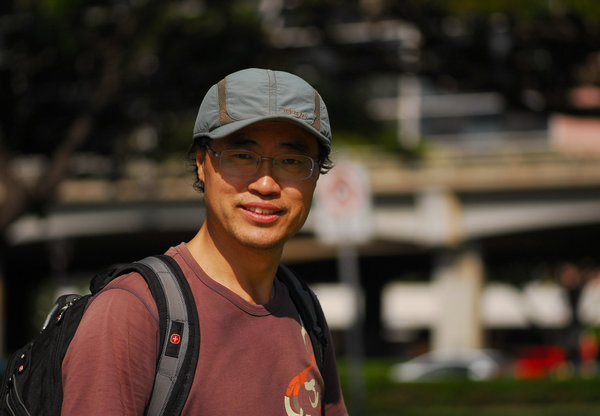Naturalist urges interaction with world around us
 |
|
[Photo provided to China Daily] |
As a naturalist and professor of the history of science at Peking University, Liu Huajie says his main task is to help his students get to know the beauty of nature.
If youth develop an emotional attachment to nature, the environment will be in good hands, Liu tells a recent salon in Beijing, titled "How could natural history rescue China from ecological crisis?"
"Truth be told, I don't have a solution: The problem with environment is staggering enough that not even the premier has an easy way to address it," says the 49-year-old who's known for promoting a naturalist outlook.
"That said, I believe natural history could contribute to ecological civilization, especially in the long run," he says.
"Naturalists, with their understanding of and link to nature, will care for nature as it's part of their lives. They have a different mindset compared to what's prevalent these days."
China is experiencing acute ecological woes that include overuse of pesticides, overgrazing, deforestation, red tides and, of course, smog, Jiang Gaoming, a researcher with the Chinese Academy of Sciences, says at the salon.
"If we carry on what we've doing, it might be just too late to solve the problem," Jiang says.
Liu says more people should share a naturalist's way of dealing with the world-one that typically relies on instinct and observation.
Natural history-the study of organisms that is highly individual and dependent on experiences-has in the past produced luminaries like Charles Darwin, E.O. Wilson (known for his study on ants and his principles of conservation-area development) and Rachel Carson (who penned Silent Spring).
"Natural history is a different system compared with science," Liu says. "It's about indigenous knowledge, the kind you gain from interacting with the world instead of lab results.
"Nowadays, people give up much of their natural instincts and turn to scientific readings to understand nature. But firsthand knowledge is essential for survival.
"Besides, how can you expect someone brought up (exclusively) in urban, man-made forests of things to truly care for nature?" he says.
Liu grew up in China's northeastern Changbai Mountains before enrolling in Peking University to study geology.
That idyllic fruit-picking, flower-plucking childhood had forged "a strong tie with nature that no words could describe", Liu recalls.
He is partial to plants and is compiling flora glossaries in the various places he has set foot-from his university campus to Honolulu.
"As a naturalist, you get to know the plants from your feelings, your own ways of learning instead of authoritative scientific procedures," he says.
"Rolling on grass could be a good naturalist's way of learning. You feel how hard the ground is and how well grass grows."
He tries to infuse that love of nature into students with classes on natural history and field trips.
That reverence of the natural is also ingrained in Chinese culture, thanks to ancient dossiers on the relationship between man and nature, says Liu.
For thousands of years, China had produced both fabled depictions of geography and myths like the Classic of Mountains and Seas (dating to the fourth century BC); encyclopedias like the Compendium of Materia Medica, which is a work of traditional Chinese medicine written by Ming Dynasty (1368-1644) scholar Li Shizhen; and travelogs by Ming Dynasty geologist Xu Xiake.
"We have enough scientific institutes and gauges now. It's perhaps time to look back on the tradition that sustains us through history," he says.
"It's a slower, beautiful way of life-a path well worth taking."


















